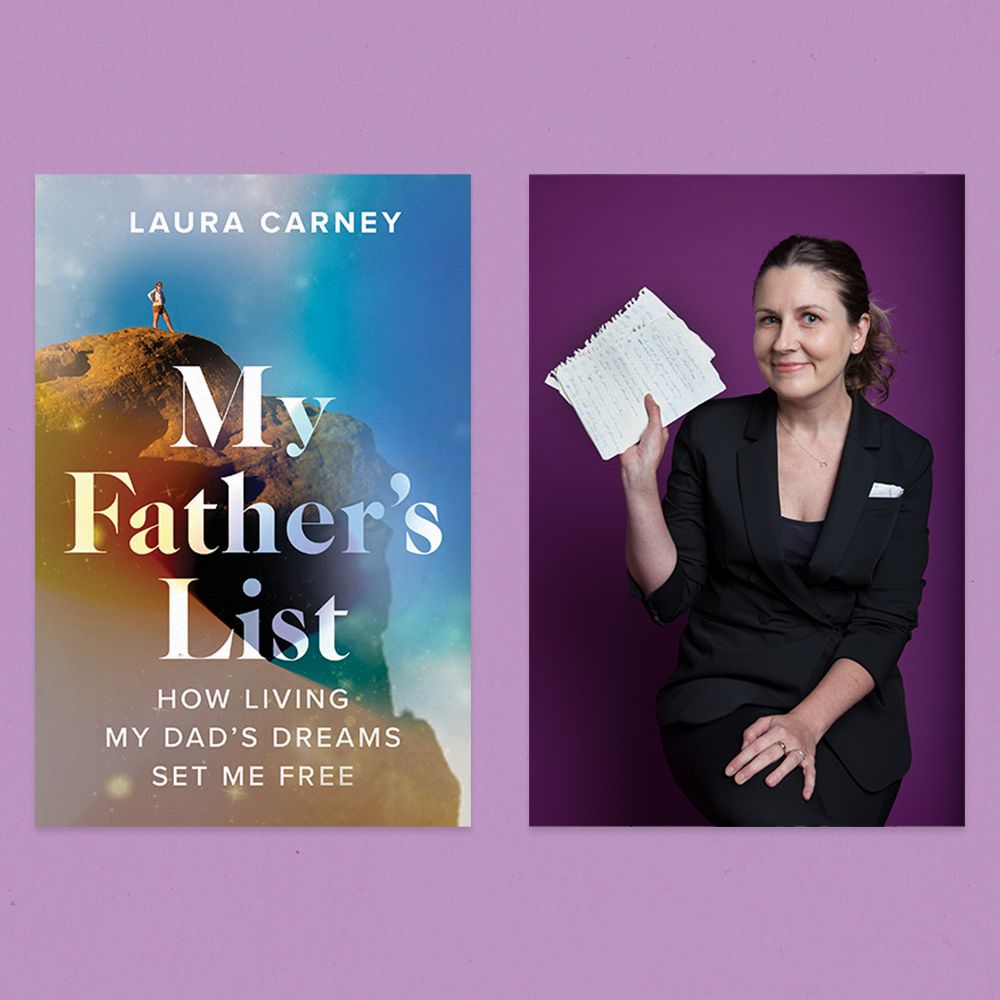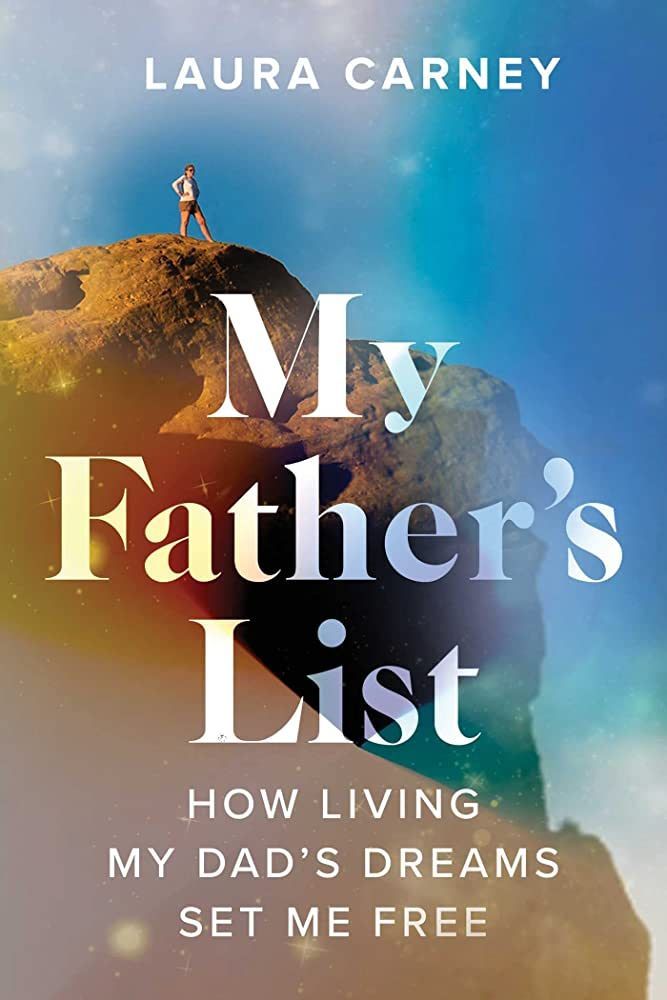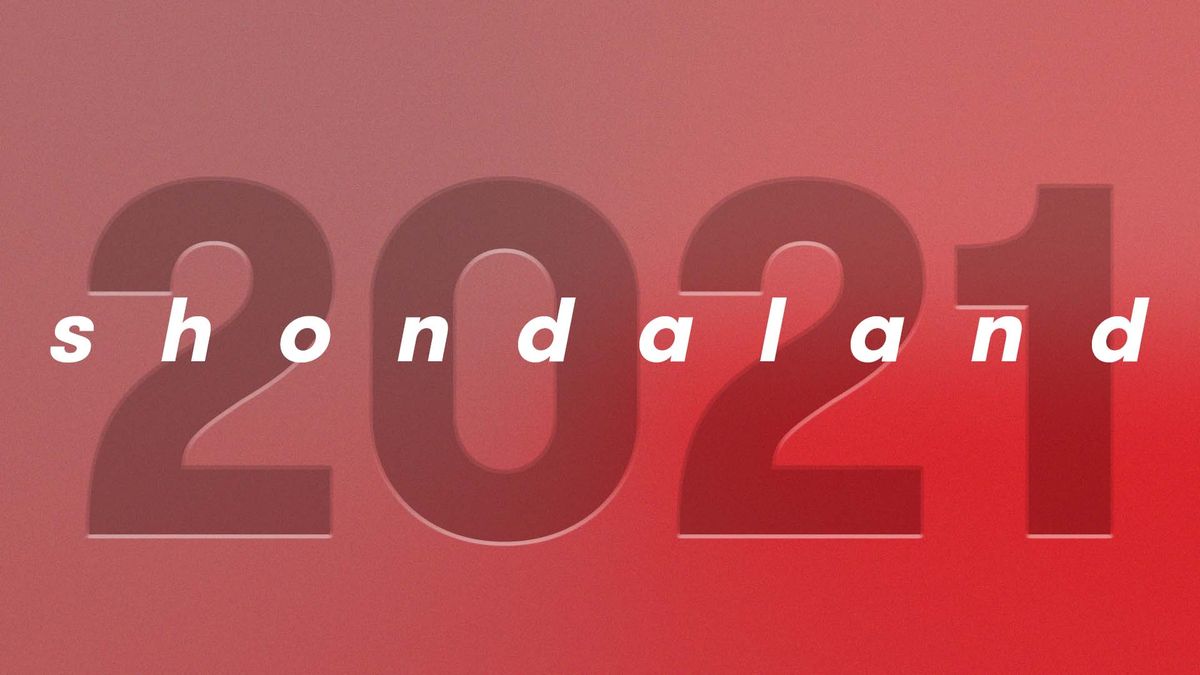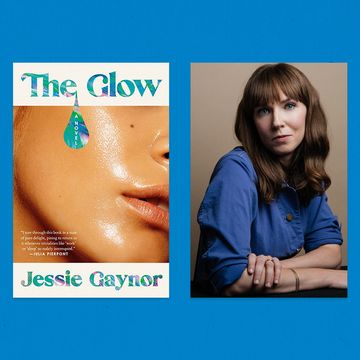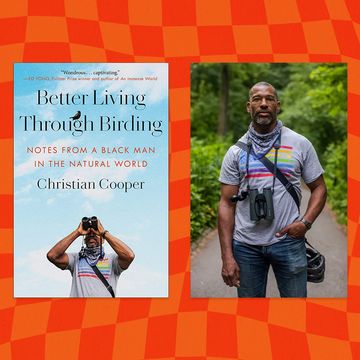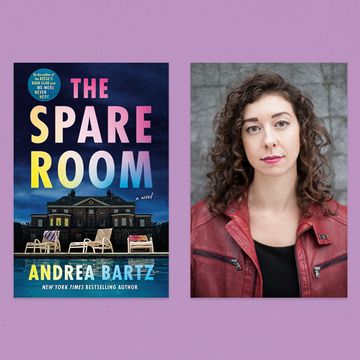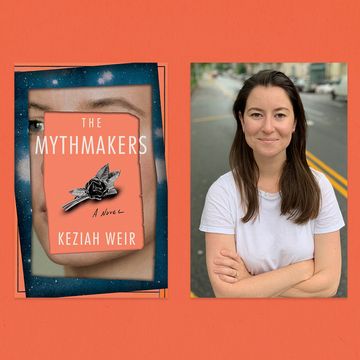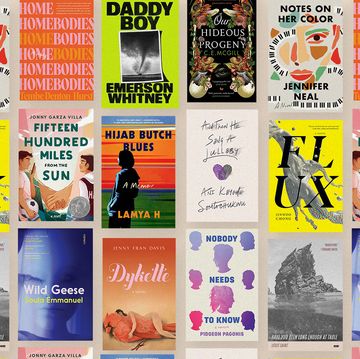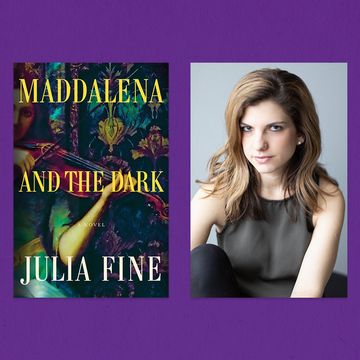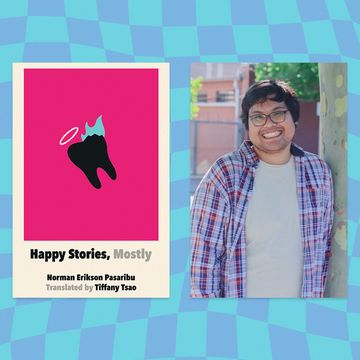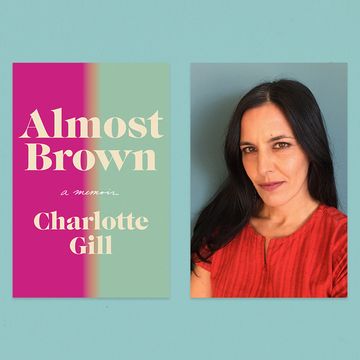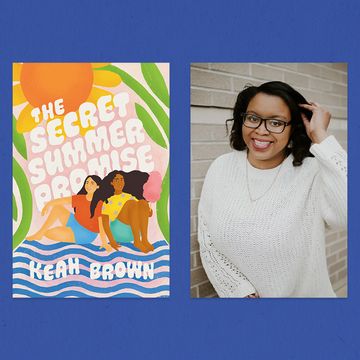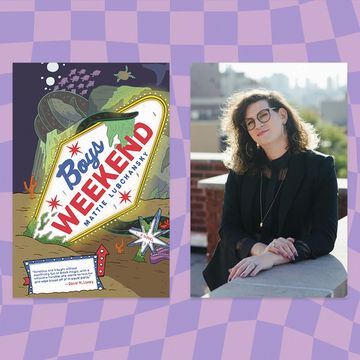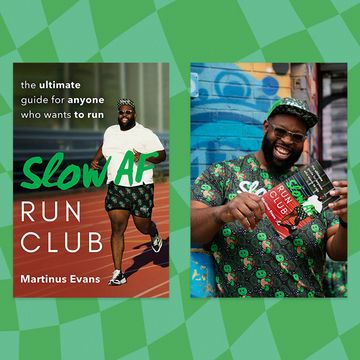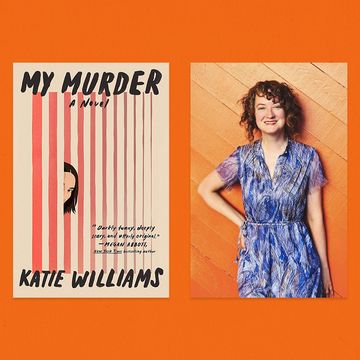Writer and copy editor Laura Carney has worked in magazine publishing for two decades and has had her writing published by the likes of The Washington Post, the Associated Press, Runner’s World, and Good Housekeeping, but in 2017 she embarked on a journey that would change the trajectory of her life forever.
Mick Carney was tragically killed by a distracted driver when Laura was only 25 years old, but at the time, she didn’t realize that her loving yet secretive father had left something behind: the bucket list he wrote when he was only 29 years old that he never had the chance to complete. My Father’s List: How Living My Dad’s Dreams Set Me Free — the author’s debut memoir — is the story of how a 38-year-old Laura found the list and decided to finish it for him, learning much more about her father (and herself) than she had ever expected. The end result is a fast-paced, moving, and incredibly satisfying read that chronicles Carney’s journey of self-discovery, which includes everything from swimming across a wild river and her first skydiving experience to sailing, surfing, and even meeting President Jimmy Carter.
Shondaland recently caught up with Carney to discuss her father’s list, a possible film adaptation of the book, and how this memoir isn’t the end of a journey but is instead a beginning.
SCOTT NEUMYER: This book feels like it’s a lot more than simply a book about dealing with your father’s tragic passing, finding his list, and then going on an adventure to complete it. In a way, it also feels like it’s dealing with a lot of traumas throughout many aspects of your life and is really about finding yourself in the process of dealing with all that.
LAURA CARNEY: My book, I think, in a lot of ways, is about overcoming trauma that I had been carrying for a long time. I remember very distinctly feeling, when my dad died, that I felt like I was 6 years old, but I was re-experiencing when he moved out, which felt inexplicable at the time. And his death, in many ways, also felt inexplicable, because it was [caused by] someone who was using a phone while driving. It just felt almost meaningless in a way. I think that was what I struggled with a lot, because this was a person who was very meaningful to me. And yet, at the same time, I experienced something that I think a lot of kids who have divorced [parents] experience, which is that your two relationships with your parents are very separate. And for my dad in particular, it was really separate from every other person I wrote about in the book. I had my regular life, and then I had my life with my dad.
I think that’s part of why when Steven, my husband, proposed marriage 10 years after we started dating, it started bringing a lot of that stuff back for me, which I thought I had moved past. When someone’s living through grief and trauma for 10 years, they don’t know that they’re doing that. For me, I had just this void inside of me where I could never fully be happy, and I couldn’t understand why. And when he proposed, I think there was something about this very meaningful, commitment-oriented, loving experience that was now happening in my life, that was like projecting me forward, but part of me was clinging to the past that I couldn’t let go. And thank God I became a runner because I think that fast-forwarded me into it, and it helped me to begin to let go of many things.
I don’t think if I hadn’t started running, I would have ever taken on the list or written the book because I wouldn’t have had that forward momentum. But for sure, I think there was something about my grief that required me to look at some of the traumatic events that I experienced that I was not looking at, that I didn’t want to deal with, and then also tied in to some of the traumatic experiences my father had in his life. I was beginning to realize that my dad lived with secrets, and that because I was refusing to face these traumatic memories, I was beginning to live with secrets too. So, these things in him that I resented, I was becoming, and I needed to cut the cord with that. I needed to not continue with that legacy in my own life.
SN: You started working on your dad’s list in 2017, six years ago now. How does it feel to finally finish it and put all this into words in the book? Does the book release feel like the culmination of the journey?
LC: No, it feels like a beginning. Without revealing the end of the book and the story, but I think the ending of the book felt like a beginning to me too. And I never really knew how I was going to end it. There’s this intersection, I think, of the end of his life and the beginning of mine somehow. Even though this particular cycle of doing his list and writing this book does seem like an ending, I feel like this is the beginning of me being a book author. This is the beginning of another phase of my life, and it makes it a little bit easier that it’s also an ending, because I’m really excited about what’s coming next.
SN: This is a fresh start for you, but is it emotionally difficult doing interviews for the book release? Is it re-traumatizing? Are you exhausted at this point from how much press working on your dad’s list has received, or are you still on your runner’s high, so to speak?
LC: What a great question. It’s not re-traumatizing because I feel like I dealt with that now. There was a time in my life, most of my 30s and my late 20s, where if someone asked me about my dad, I couldn’t get through it without crying. And I think because I’m a writer, and I took the opportunity to write this story, it was like a blessing for me because I got to face some of those more painful memories and find a way to integrate them into the larger story, which is my life. I think because I figured out how to do that, the trauma element isn’t there anymore for me, so now I can talk about him. Whatever anybody wants to know, I can talk about, and I don’t have that sadness. I actually feel super-psyched to be celebrating him.
And you know, another thing I started experiencing was that as I faced some of those more painful memories and turned them into a story, suddenly all these happy memories started flooding back. Things I hadn’t thought about in a really long time.
SN: One of the most interesting ways that you manage the list in the book is that you don’t want to make it impossible to complete your journey. A few items you adapt to what works best for you and your family rather than being so stringent to exactly how your dad wrote it. Do you feel like doing that not only alleviated some of the pressure those items would have put on you, but it also made the journey more about you and your dad rather than just your dad’s list?
LC: In the first year of doing my list, and I think this comes across in the book too, I was very literal about most of the list items. I had to go to the Rose Bowl. I had to go meet Jimmy Carter in person. I had to surf in the Pacific Ocean. And there are certain list items that absolutely had to be literal: Go to a Super Bowl game. There’s no way around that. I had to go to a Super Bowl game. But there are also parts of it that I started noticing would just happen on their own almost organically, like the time when my mom came to visit and she said, “Oh, you’re really developing quite an impressive library.” And my mom was a very candid person. That wasn’t a canned response because she was just speaking off the top of her head. And that’s word-for-word what the list item is. So when things like that began to happen, I think I started to realize that as much as this experience was about me doing the list, there was something bigger than me that was pulling me through the list, and that was helping me do it. That was trying to show me something. I believe that was my dad’s spirit helping me. I know not everybody might believe that, but that was very real to me.
So, I think what happened was if I felt like the emotion or the experience that he intended to have was something I was having, then that was good enough. And particularly if it also was something that I felt I needed to have, a lesson that I needed that pertained to me and my own growth, because at some point, the list stopped being just his list. Instead, it was beginning to become like my guide to marriage or my guide to adult life. So, that became very flexible too. And I think that’s really cool because the list was born just after I was. He didn’t write this towards the end of his life. He wrote it when he was 29, inspired, I assumed, by just having a child. So, I think we were always sort of karmically connected.
SN: You mention in the book about meeting with film producers as well. Is there anything in the pipeline there that you can share, or not yet?
LC: I can’t say much, but we have been having discussions with some producers, and I’m working on a screenplay.
SN: Very cool! What’s the best advice you’ve ever received?
LC: You know, surprisingly, my answer is not something my dad said. It’s something my mom always said when I was little. I remember her very clearly saying this — I even describe it in the book when I would be anxious and not able to go to sleep at night — “To thine own self be true,” which is Shakespeare. It’s from Hamlet, and I think the whole phrase is “to thine own self be true … and you cannot be false to any man.” What that means is, I think, it goes along with my acceptance that I can’t control what happens, and I can’t control how other people are, but I can put as much energy as I possibly can into being my authentic self. And if there’s a hurdle inside of me, if there’s something that is preventing me from doing that, I need to figure out what that is. Because we all have situations in our lives where somebody misunderstands us, or somebody might think we had a nefarious motive to do something, which I think is something we come across a lot more of these days, just based on how we communicate. So, my feeling is because we’re living in a time where things are misunderstood, and it is challenging to get someone’s attention long enough even for them to get what you’re saying and trust you, the best I can do is make sure I trust myself. Because if I trust myself, I can do anything. I think if more of us made that choice, to trust ourselves and to love ourselves, we’d get a lot more done.
This interview has been edited for length and clarity.
Scott Neumyer is a writer from central New Jersey whose work has been published by The New York Times, The Washington Post, Rolling Stone, The Wall Street Journal, ESPN, GQ, Esquire, The Boston Globe, AARP, Parade magazine, and many more publications. You can follow him on Instagram and Twitter @scottneumyer.
Get Shondaland directly in your inbox: SUBSCRIBE TODAY
